The piano has been and continues to be one of the most popular and influential musical instruments in our history. There have been many famous piano players over the centuries, some classical performers, some more contemporary, and some modern. But all of these musicians had something in common. They redefined the sound and style of the instrument in a way that changed music forever.
Let’s take a musical journey up and down the keyboard and discover the most famous classical piano players of all time.
1. Lang Lang
Born in1982, Chinese pianist Lang Lang began piano lessons at the young age of three and only two years later gave his first recital.
At age 13, he took first prize at the Tchaikovsky International Piano Competition for Young Musicians in Japan which drew considerable attention and was the start of a very successful career
A year later, in 1996, he featured as a soloist with the Chinese National Symphony Orchestra in front of then Chinese President Zemin.
Moving to the US in 1997, he studied under Gary Graffman, the Curtis Institute of Music president in Philadelphia.
In 1999 he shot to fame after stepping in for Andre Watts at the Ravinia Festival in Illinois. He performed Tchaikovksy’s Piano Concerto No1 in B Flat Minor with the Chicago Symphony Orchestra.
He became the first Chinese pianist to perform with the Berlin Philharmonic Orchestra in 2004, and his demand for high-profile events grew along with this fame.
The Olympic Games in 2008, the 2009 Nobel Peace Prize ceremony and Queen Elizabeth II’s diamond jubilee in 2012 were just a few of the high-profile events he has performed.
He has also enjoyed commercial success with numerous albums and collaborations with music superstars like Metallica and Pharell Williams at the 2014 and 2015 Grammy awards, respectively.
2. Franz Liszt
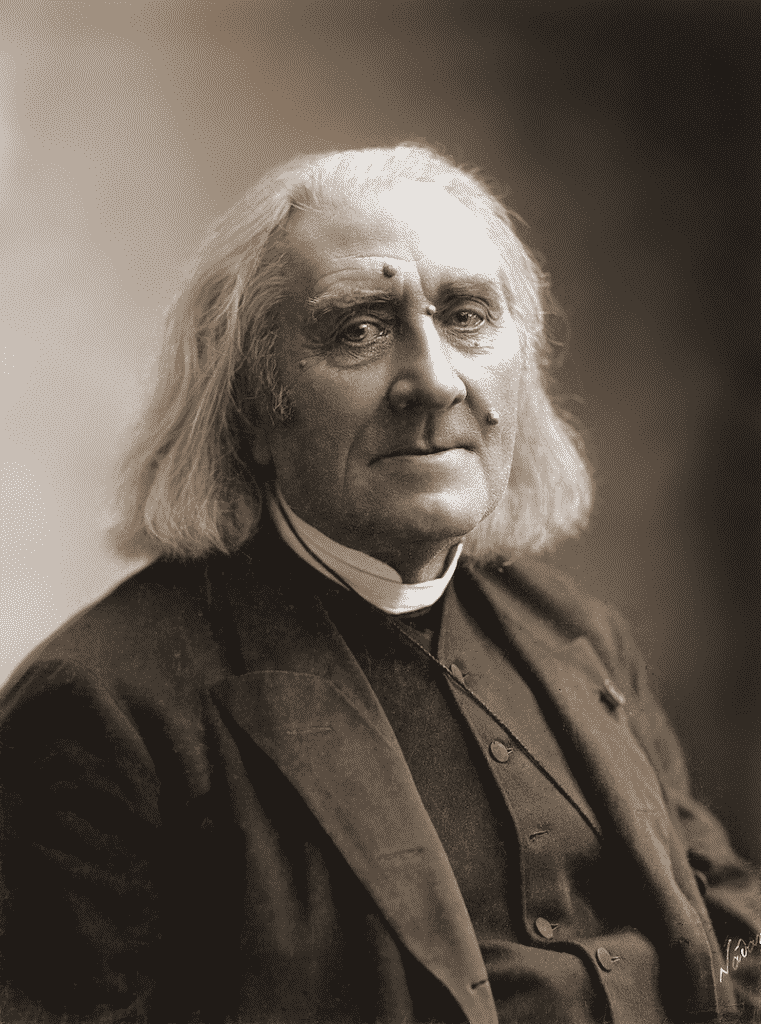
Another well-known piano player was the Hungarian composer Franz Liszt.
Liszt revolutionized piano recitals not only with his performance energy but the position he used while playing as he was the first to perform side-on to the audience so that his hands were visible.
Known for his piano superpowers that amazed and enthralled his audience, some of his best-known compositions include Liebestraum No. 3, The Mephisto Waltz, Piano Sonata in B Minor, and the notoriously difficult Annees De Pelerinage.
Liszt was a true performer, letting his emotion and passion show unbridled in his playing through his facial and body expressions, a trait he was both mocked and admired for.
3. Wolfgang Amadeus Mozart
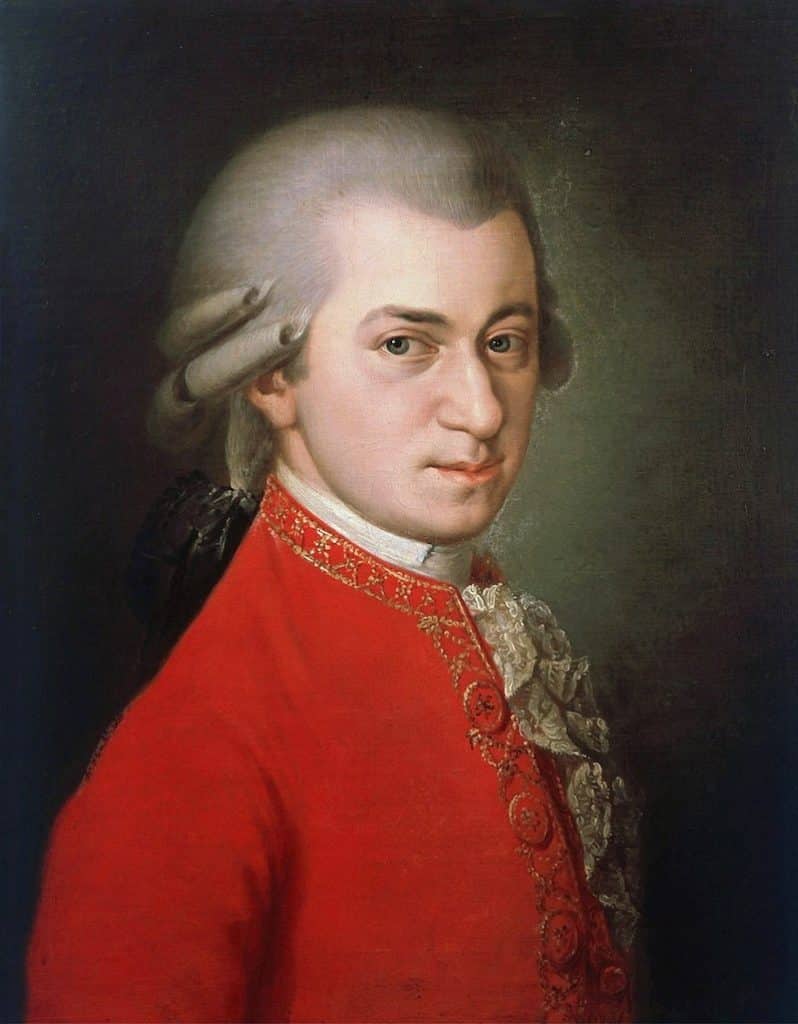
As a composer, Mozart needs no introduction and is one of the most well-known and prolific composers of the classical era.
But, he was also an incredible pianist and was performing for audiences at the age of 5 and was considered by many as a child prodigy.
His sister Nannerl (yes, he had a sister and an equally talented one at that) once described his playing during his childhood as ‘faultless and with the greatest delicacy.
His compositional brilliance and legacy of piano classics have influenced most piano players in some way or another.
4. Claude Debussy
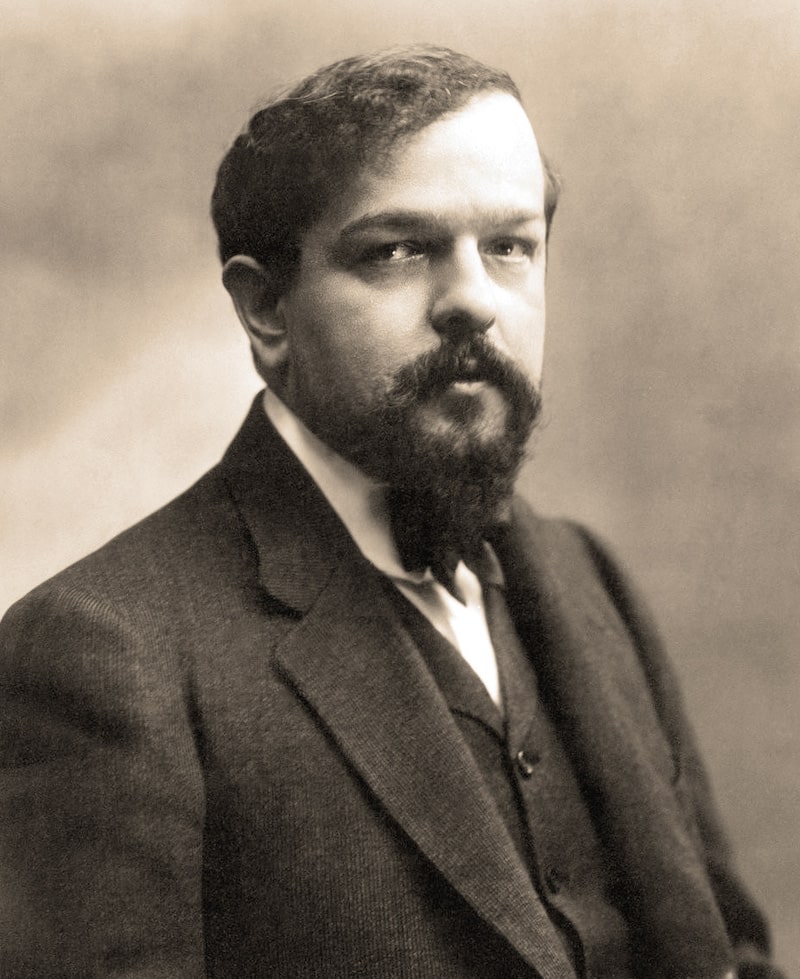
One of the most famous French composers and pianists, Claude Debussy, began studying the piano at the age of 7.
He showed great promise, and by the time he was ten years old, he began studying at the Paris Conservatoire.
While there, he also did a lot of composing, and eventually, that took over his piano playing, going on to win the Prix De Rome with his cantata L’Enfant Prodigal in 1884.
Debussy’s significant influences were those of Russian composers Mussorgsky and Borodin and Richard Wagner, and he is considered one of the most critical influences in Impressionist music.
It took him 15 years to write his famous Suite Bergamasque, completed in 1905, and the even more famous Claire De Lune was the third of the four movements in the piano suite.
5. Glenn Gould
The great Leonard Bernstein referred to Canadian pianist Glen Gould as “one of the greatest things to happen to music in years!”
Born in 1932, Gould was considered a prodigy at a young age, apparently learning to read music before we could read English.
He had an interesting perspective on practice and said that he found he could ‘practice mentally,’ and he never really understood the idea of constant practice or why pianists insisted on it.
His music was included on NASA’s Golden Record aboard The Voyager Space Craft as a testament to his legacy.
The Glenn Gould School and Foundation continue to honor his contribution to this day.
6. Robert Schumann
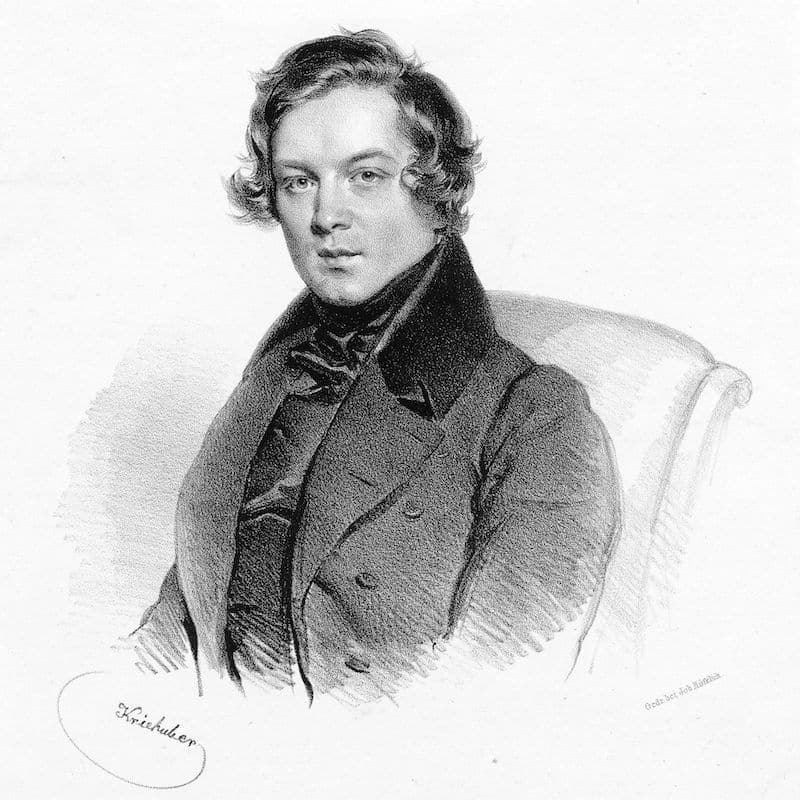
The German composer and pianistRobert Schumann began his musical studies at age six.
He came under the musical influence of Austrian composer Franz Schubert and the lyrical inspiration of German poet Jean Paul Richter in 1827.
His later-to-be wife, Clara, was the daughter of piano teacher Friedrich Wieck, and he met her when she was nine while studying under him.
She later became a celebrated pianist, and many of his later works were written for her.
Limited to composition after an accident damaged one of the fingers on his right hand, the period from 1833 – 1837 proved prolific in terms of compositions.
His most famours works include Carnaval, Symphonic Studies, Kinderszenen, Kreisleriana, and the Fantasie in C Major.
7. Ludwig Van Beethoven
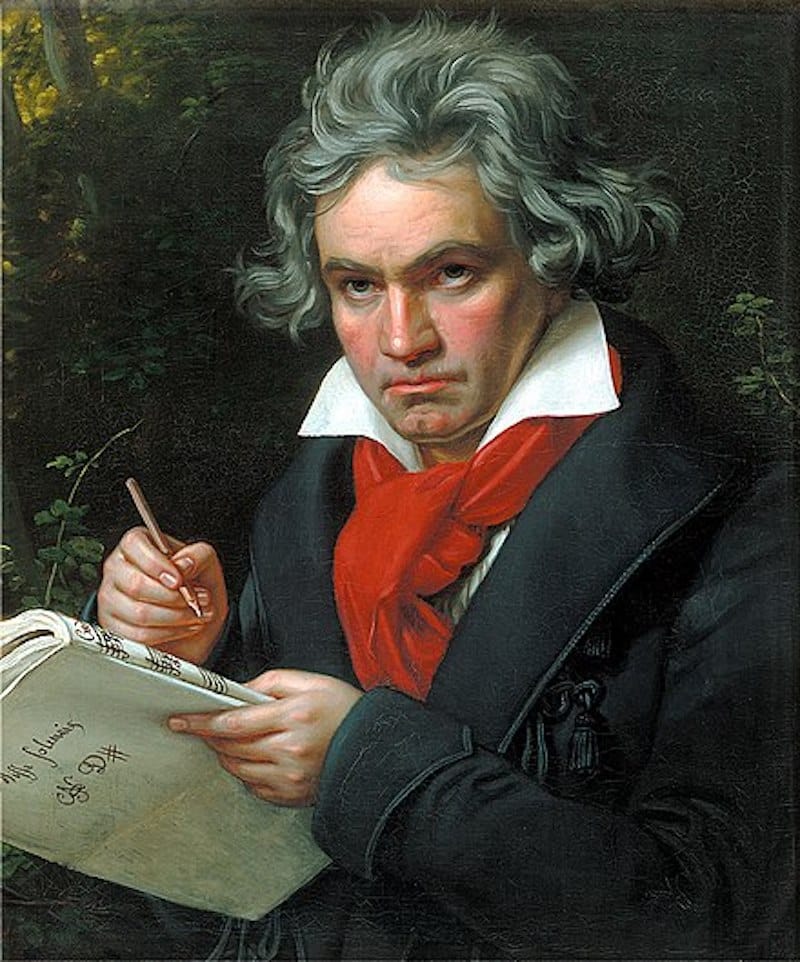
Like Mozart,Ludwig Van Beethoven was one of the greatest composers of all time, but he was also a virtuoso pianist of his time.
Beginning his studies at a young age, by the time he was 11 he was known to be very skillful and even worked as a court organist.
Eventually, he became known for his compositions and wrote a lot of amazing pieces such as his Symphony No. 9, Symphony No. 4, and his Piano Sonata No. 14.
As he got older, he began to lose his hearing, but still managed to composer using the lower register on the piano to continue writing music.
No one is genuinely certain about the cause of his deafness, although it was established that he had large amounts of lead in his blood.
8. Martha Argerich
Born in Argentina in 1941, famous female pianistMartha Argerich started playing the piano at three years old and, at eight years old, played her first concerto – Mozart’s Piano Concerto in D Minor.
Martha achieved fame in 1965 when she won the International Chopin Piano Competition in Poland.
Not one for the spotlight, she shunned media attention but performing publicly revealed her fantastic talent and musical abilities.
She also preferred being on stage in groups rather than appear as a soloist, and as such, she has been playing in concerto format since the 1980s.
In 2002, a documentary entitled Martha Argerich, Evening Conversation was released as a biopic.
9. Maurice Ravel
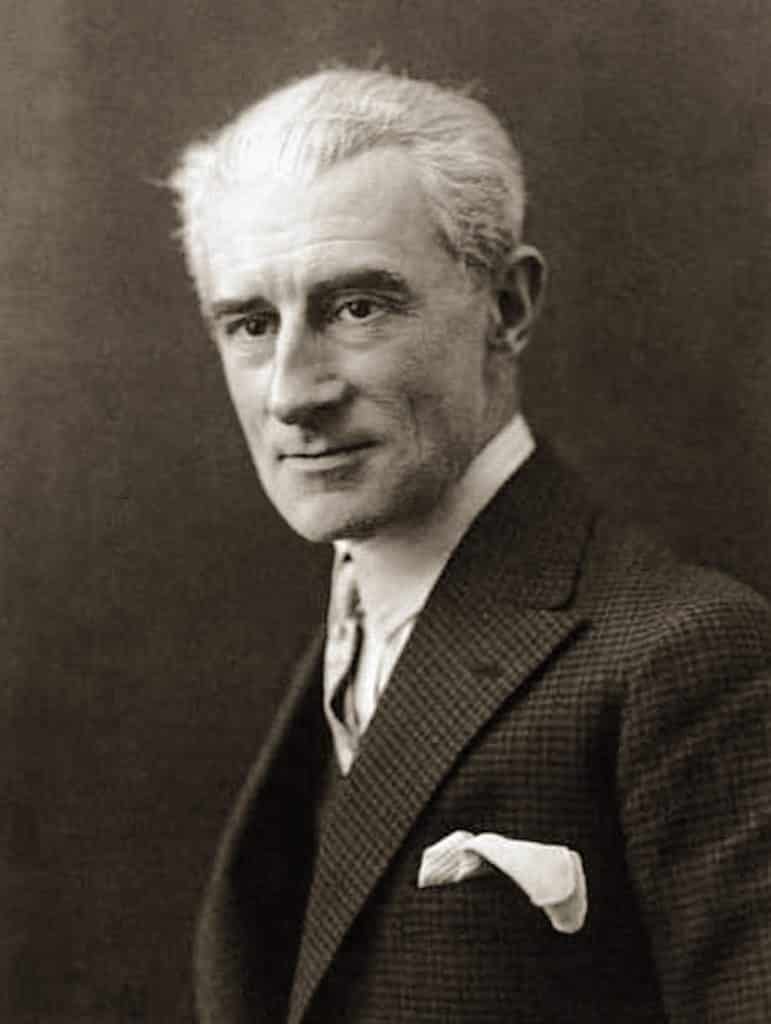
The French composer and pianistMaurice Ravel and his musical talent became apparent at an early age.
Encouraged by his father, a well-educated engineer, he enrolled in the Paris Conservatoire in 1889 at age 14 and remained there until 1905.
In 1928 he composed his most famous work, Bolero, initially as a ballet with Ida Rubinstein in the principal role.
Ravel was severely affected by aphasia in the last five years before his death.
This condition affected his sight and speech and left him unable to compose music even though his musical creativity was as active as ever.
An operation to unblock an obstruction in a blood vessel that supplied the brain was unsuccessful, and he died in Paris in 1937.
10. Felix Mendelssohn
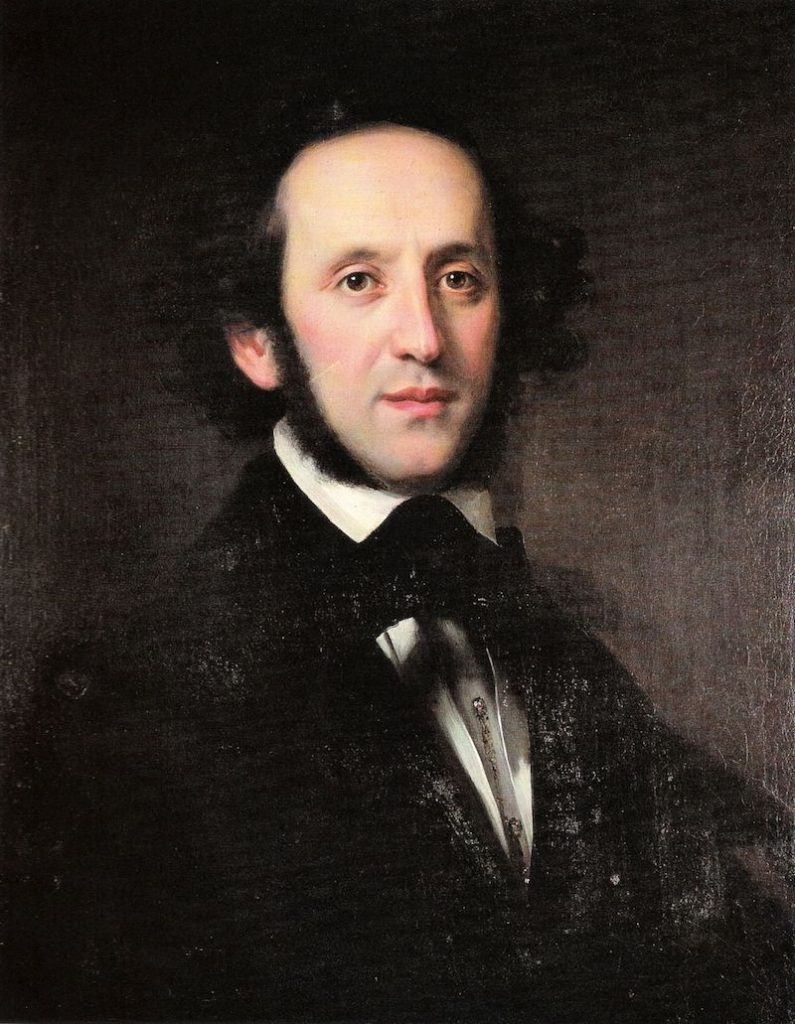
The German composer, pianist, conductor, and teacher is rated as one of the Romantic period’s greatest and most celebrated musicians.
His early piano lessons were from his parents.
The family moved to Berlin in 1811, where he studied composition with Carl Zelter and piano with Ludwig Berger.
Zalter would have a tremendous influence on Mendelssohn’s development.
He made his first public appearance in 1818, aged nine and at age 12, and played the works of Bach to poet J.W. Van Goethe.
His Piano Quarter No3 in B Minor, written in 1825, was dedicated to Goethe.
The following year he composed Overture To A Midsummer Nights Dream, and this along with Italian Symphony (1833), a violin concerto in (1844), two piano concerti (1831, 1837), the oratorio Elijah (1846), ranks as his most famous works.
He founded the Leipzig Conservatory of Music in 1843 and taught composition there along with Robert Schumann.
In 1847, the loss of his sister devastated him severely, that only a few months later, he died in Leipzig from a ruptured blood vessel.
He is admired as one of the great composers of the Romantic period.
11. Frédéric Chopin

Chopin is considered Poland’s finest composer, and his influence on composers that followed him cannot be understated.
He published his first composition aged just 7. At eight years old, he was writing and producing original compositions, one of which was Polonaise in G Minor.
In 1826, he was enrolled in the Warsaw Conservatory of Music. In 1829, sensing he needed to broaden his musical horizons, his parents sent him to Vienna.
In the three years that followed, Chopin toured much of Europe and eventually settled in Paris in 1832, where he met and established relationships with the likes of Frans Liszt and Felix Mendelssohn.
He met French novelist Amantine Dupin, a.k.a Geroge Sand, and in 1839 in Marseilles, he was diagnosed with tuberculosis.
After recovering there, he and Sand spent the next seven years in Nohant at Sands’s family home south of Paris.
This period was incredibly productive for Chopin, and he produced some of his finest works like Sonata in B Minor, the Opus 55 Nocturnes, and the Opus 56 Mazurkas.
His other famous pieces include Fantasie -Impromptu (1834), Nocturne in C sharp minor, Op. post. (1870) and 24 Preludes (1839).
12. Clara Schumann
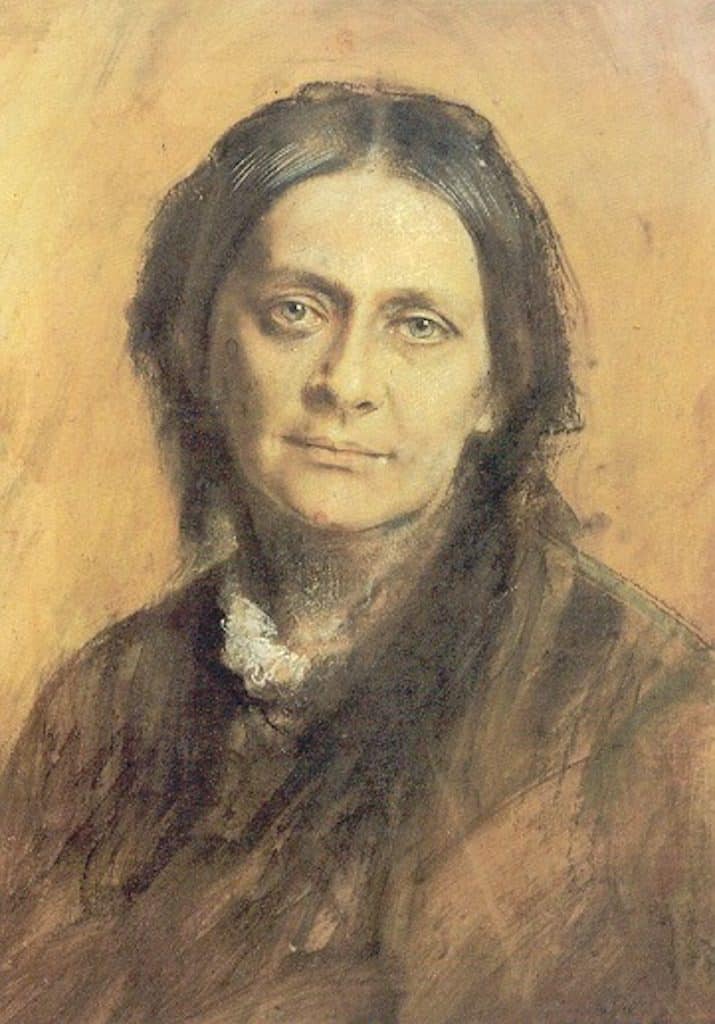
While her more famous husband Robert took the limelight, her talent was significantly greater than his.
While he was a great composer, she was the superior performer.
Clara Schumann was one of the few female pianists that stood out in the male-dominated 19th Century, and she was considered one of the stars of the day.
After her husband died in 1856, she joined forces with acclaimed violinist Joseph Joachim and toured with him for many years.
Aside from her compositions, she also performed works from Brahms, Chopin, and Mendelssohn.
She continued to influence her students to ponder the original intention of whatever work they were playing and thereby recreate the composer’s inspiration through their interpretation.
This method of insight and expression became a global benchmark and even found recognition at Juilliard.
13. Vladimir Horowitz
The Russian-born pianist is a strong contender for one of the greatest pianists of all time.
His renditions of works by Liszt, Chopin, Rachmaninov, Prokofiev, and Scarlatti have been critically admired and acclaimed for his incredible precision and dynamic range.
At age 12, he entered the Kiev Conservatory and debuted in a concert in Kharkiv in 1922.
A year later, his performance in Leningrad of more than 200 works played over 23 recitals with no duplications confirmed his status in music.
After acquiring US citizenship in 1944, Horowitz ceased performing publicly from 1953 to 1965 and only returned to the concert stage in the USA in 1971 and 1984.
He then toured Europe in 1982, performed two concerts in the Soviet Union in 1986, and played his final show in Hamburg in 1987.
He also mentored several notable pianists such as Gary Graffman, Ronald Turini, and Murray Perahia.
He was buried at the Toscanini family plot in Turin, Italy, after his death in 1989.
14. Sergei Rachmaninoff
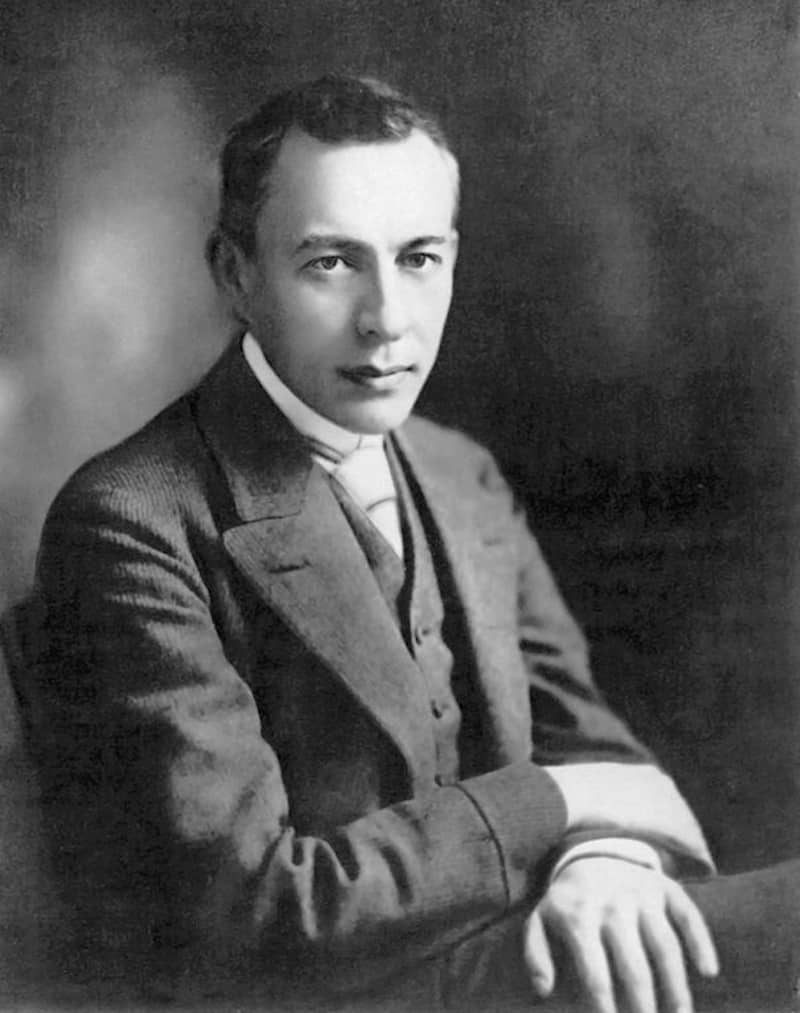
One of the most highly regarded virtuosos of all time, he incorporated the works of the great composers like Bach, Beethoven, Chopin, Debussy, Liszt, Mozart, and Schumann ( to name a few) in his playing repertoire.
Tchaikovksy mentored him as a concert pianist, but his prodigious composing skills became evident after writing his first piece at age 15.
He arrived in New York in 1918 and began to earn money there through performing.
His dedication to practice was legendary, and he played up to 15 hours a day.
His famous works include Piano Concerto #2, Rhapsody of A Theme Of Paganini, and the Sonata For Piano And Cello in G Minor, Op 19.
15. Arthur Rubinstein
The Polish pianist started his piano playing at age three and studied at the Warsaw Conservatory by eight.
He made his public debut aged seven and his European debut aged 13.
His dedication to practice led him to spend 12-16 hours playing, adding to his impressive technical ability.
Rubinstein is still regarded as one of the greatest piano players of the 20th Century.
His repertoire was extensive, and he included works by Beethoven, Chopin, and Mozart and more modern pieces from Ravel, Albeniz, and Stravinsky.
Upon returning to Carnegie Hall, he was finally recognized for his genius after two previous performances (1906 and 1919) received less than enthusiastic responses.
He has made more than 200 recordings and was awarded the United States Medal of Freedom in 1976.
16. Daniel Barenboim
This Israeli pianist and composer is well known and admired for his interpretations of Beethoven and Mozart and highly respected for his leadership as the conductor of The Chicago Symphony Orchestra.
Both his parents were pianists, and his father was a music professor of good reputation and standing.
He debuted as a pianist at seven and made his Royal Philharmonic debut in London in 1956 and his America debut in 1957 at Carnegie Hall.
He began his conducting career in 1962 in Israel and then Australia.
From 1975 to 1989, he served as the conductor of the Orchestre De Paris. In 1989 he accepted the position at the Chicago Symphony Orchestra.
He advocated for peace in the Middle East through music and co-founded the West-Eastern Divan Orchestra, and performed in Egypt for the first time in 2009.
In 2007 he was awarded the Praemium Imperiale prize for music from the Japan Art Association.
17. Sergei Prokofiev
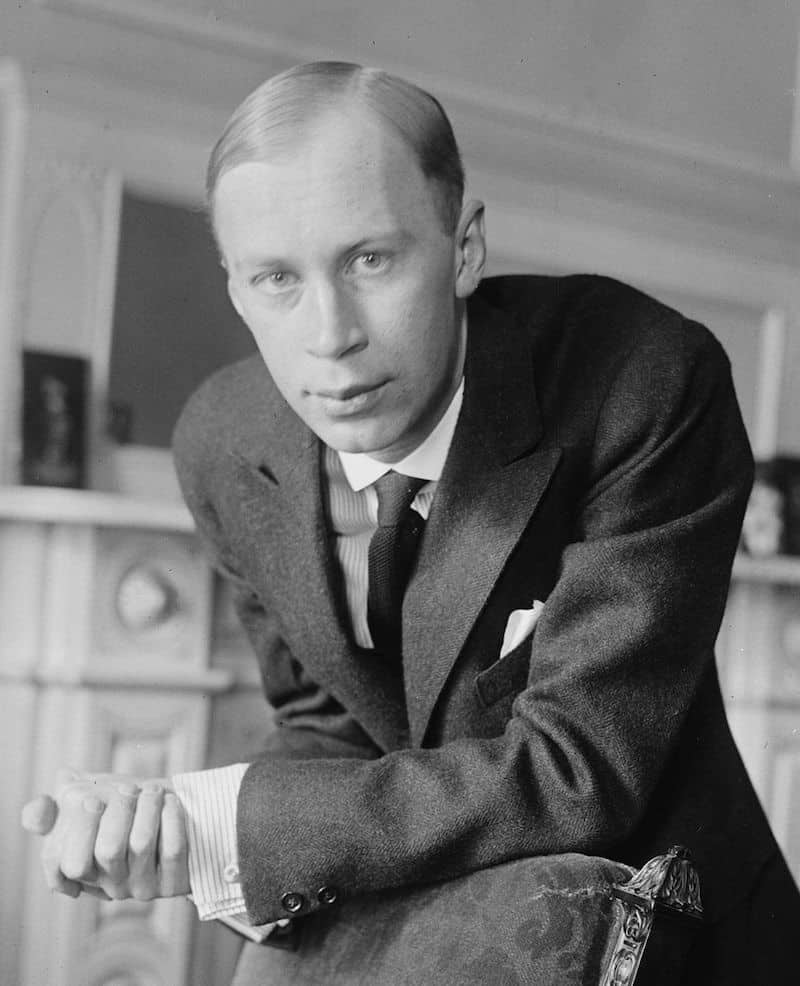
He was mentored first by his mother and then later by Sergey Taneyev and subsequently taught composition by Reinhold Gliere as preparation for his entrance to the St Petersburg conservatory.
From 1904 to 1914, his time at this institution proved exceptional.
His creative talent was rewarded with the Anton Rubinstein prize for piano for his composition and superb performance of Piano Concerto No. 1 in D-flat Major.
He first publicly appeared in 1908 and then during the Moscow symphony summer season of 1911-1912.
Traveling around Russia and then to San Francisco in 1918, he played in Tokyo and Yokohama, and after performances in New York in 1919, he finally settled in Paris in 1923.
During the 1920s and early 1930, Prokofiev toured the epicenters of music in Europe and the USA in 1925, 1933, and 1935 brought him new commissions.
He returned to Moscow in 1933, closed his apartment in Paris in 1936, and did his final tour in the West in 1938.
In the years before World War 2, he created some of his greatest works, including the Violin Concerto 2 in G Minor (1935), Romeo And Juliet (1936), and Peter and The Wolf (1936).
Prokofiev also studied some of the technical elements of sound film on his last visit to Hollywood.
This knowledge was applied to the inspirational national music for the film Alexander Nevsky by Sergey Eisenstein.
Over the years, the almost excessive levels of work took a toll on his health, and the stress of being censured for ‘formalism’ by the Communist Party in 1948 added to this.
He died unexpectedly in 1953 from a cerebral hemorrhage.
He was posthumously awarded the Lenin Prize, Soviet Union’s highest honor for his Symphony No 7 in 1957.
His famous works include Peter and The Wolf, Romeo, and Juliet, Piano Concerto No. 3, Love for Three Oranges, War and Peace, and Toccata.
18. Krystian Zimerman
Krystian Zimerman is a Polish pianist and conductor best known for his passionate renditions of Chopin’s music.
He started studying piano at the tender age of five and was first taught by his father.
Following his early training, he studied under Andrzej Jasinski and remained there to complete his musical training.
In 1973, he won first top honors at the Ludwig Van Beethoven International Piano Competition in Hradec Kralove.
Two years later, in 1975, his performance at the International Fryderyk Chopin Piano Competition ignited his international career.
He was invited to Paris in 1976 by Artur Rubinstein, a move that would prove invaluable to his development.
While passionate about Chopin, his repertoire also includes works from Liszt, Shubert, Brahms, Grieg, and Bela Bartok, to name but a few.
In 1999, Zimerman created the Polish Festival Orchestra that saw critical success with a major tour celebrating Chopin’s music to celebrate the 150th anniversary of the composer’s death.
Among his many awards, Zimerman was presented with the Order of The French Legion of Honor in 2005 at the MIDEM awards in Canne.
His incredible technical skill and ability to move audiences with his playing and orchestration leave his contribution to music and piano indelibly etched in history.
“Music is not sound. Music is using sound to organize emotions in time“.
19. Mitsuko Uchida
Dame Mitsuko Uchida is regarded as one of the revered pianists of modern times.
Her interpretations of works from Schumman, Schubert, Mozart, and Beethoven are both emotional and dynamic, and this rightly earned her high status in modern classical music.
Her musical training only really began when her family moved to Vienna in 1960, where she enrolled in the Vienna Academy Of Music under Richard Hauser.
Two years later, at age 14, she gave her first recital.
She moved to London in the early ’70s and began to make a name for herself in the ’80s through her interpretations of Mozart and subsequently expanded her repertoire to include works from Debussy, Schubert, and Beethoven.
Her awards are numerous and include:
- Grammy Award 2011 & 2017
- Royal Philharmonic Gold Medal 2012
- Premium Imperiale (Japan Art Association) 2015
- Honorary Commander Of The Order Of The British Empire (CBE) 2001
- Dame Commander Of The Order of the British Empire (DBE) 2009
20. Sviatoslav Richter
The Russian-born pianist is considered to be one of the greatest in modern history.
His playing career started in 1934, and his steadfast dedication to playing the great works EXACTLY as they had been written is legendary.
He played at prestigious venues like New York’s Carnegie Hall and was most well known for Brahm, Paganini, Handel, Beethoven, and Debussy performances.
He believed that the pianist should study the works well and reproduce them without alteration.
He was also friends with composers Shostakovich and Prokofiev, and both wrote works for him.
He preferred to play in a barn in France rather than the world’s major stages as an artist.
His musical repertoire was one of the largest of any pianist, and ironically his favorite composer was Wagner.
Oxford University hailed him as “A Doctor Of Music,” He won a Grammy in 1960 for ‘Best Classical Performance,’ The Stalin Prize in 1950, and The Lenin Prize in 1961.
21. Jean-Yves Thibaudet
He began his piano studies at aged five and made his public debut at seven.
At twelve, he entered the Paris Conservatory studying under Lucette Descaves, a collaborator of Ravel.
His recordings have received two Grammy nominations, and the range of music includes works from Liszt, Beethoven, Grieg, and Saint-Saens to Gershwin, Khachaturian, and Qigang Chen, and James Macmillan.
He has more than 50 albums over his thirty-year career.
He won the Premier Prix Du Conservatoire at fifteen and the Young Concert Artists Audition in New York three years later.
He was also awarded the Victoire D’Honneur and was inducted into the Hollywood Bowl Hall of Fame in 2010.
Summing up our List of Famous Classical Pianists
These are just a few of the most well-known classical piano players in history.
We hope you’ve been able to learn more about these amazing pianists and will take this opportunity to listen to some of their recordings or compositions.
If we’ve missed any that should be included here, let us know and we’ll update our list.

